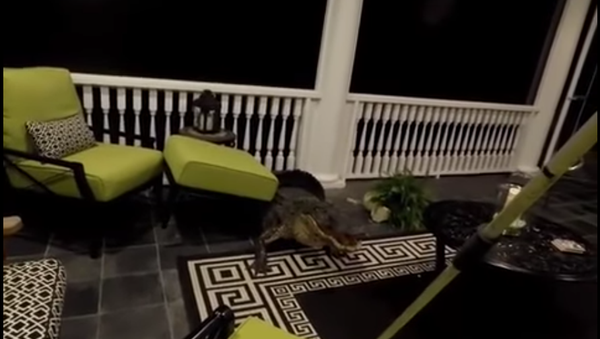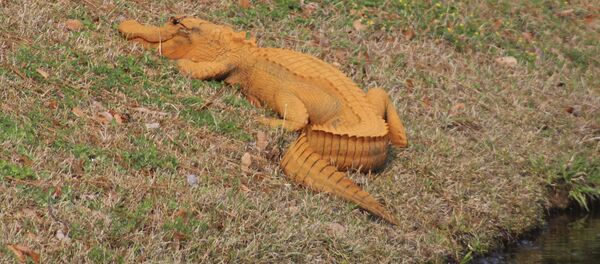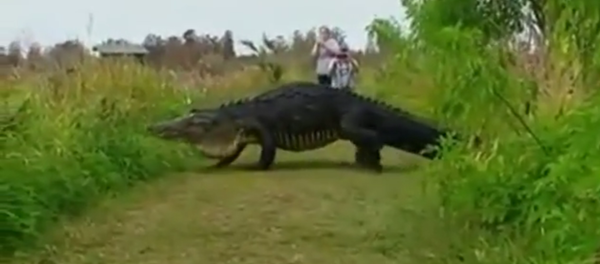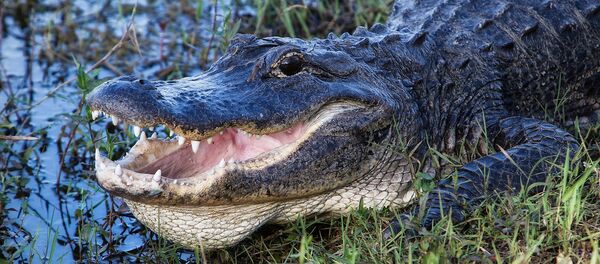"It was just surreal. It was so bizarre," Polston told the Post and Courier. Perhaps she had been hoping for a visit from the Easter bunny instead?
"It started with me waking up at 2 a.m. to a bunch of movement from what sounded like someone forcing entry," Susie's daughter Laura Polston told the paper. " I assumed it was my mother doing housework at odd hours until she called me from downstairs asking what noise I was making and why."
Polston says that she and her family initially believed the beast to be a plastic replica, until it moved. They called Gator Getters Consultants, a company that removes the prehistoric predators from area homes.
But the animal control workers ran into difficulty removing a gator of that size. "A 5-footer, we could have put a dog stick on it and dragged it out," said Gator Getter Consultants agent Ronnie Russell. "One that large, he likes to grab onto things [to struggle.]"
The alligator wasn't a fan of the removal attempts, and he began to thrash about and destroy porch furniture. After two hours of unsuccessful attempts to remove it, Russell told the Polstons their options: to put the beast down, or to wait for it to leave, which could take days.
Unhappily, they chose the former option, and Russell's team euthanized the alligator.
While alligators are a common sight far south of the Mason Dixon line, the stubby-legged carnivores aren't exactly known for their climbing ability. But springtime marks their mating season, and just like humans, male alligators will do things nobody thought possible to get laid.
To find mates, alligators emit low-frequency bellows that humans can't hear. If a male alligator hears the call of an fine-sounding female, he will take the shortest and fastest possible route to her — even if that route involves verticality.
Although alligators are usually seen as killing machines, they typically won't attack adult humans, particularly on land. However, they can grow belligerent if threatened and can run at up to 25 miles per hour.
The beasts are a common sight on the golf course behind Casa de Polston, but the house itself is surrounded by a fence, and Susie Polston says that she has never seen an alligator penetrate the fencing in her seven years living there. "That's what alligators do, they follow that fencing until they can get around it or through," Russell said.
Susie Polston says that her family is getting a more secure porch door as well as gate on their stairwell. But the Polstons have no intentions of fleeing alligator country, she says. "We love it here. It's beautiful. We think this was rare. We hope it was rare."





